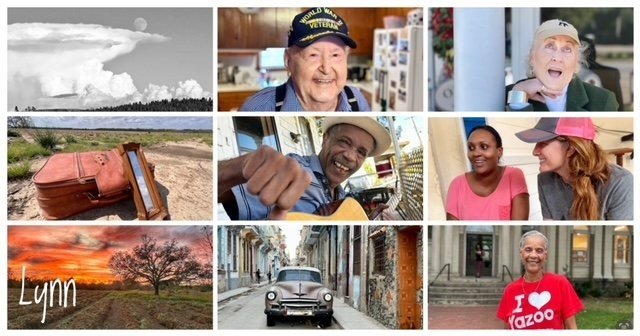Knives, Guns, Forgiveness and Scars
I left my bench in Cathedral Square to take a break from transcribing this morning's interview about domestic violence. When I returned, two women were sitting on my bench drinking beer and eating pizza.
Ruth and Sonya. They spoke first and said they were victims of domestic violence, too. Ruth showed the scars from bite marks and a steak knife left by another woman on her arm.
She lifted up her shirt and revealed more scars. Two as long as my foot on her stomach. One was from being attacked by her girlfriend with a butcher knife, the other was from the surgeon to see if the knife ruptured her spleen.
"I talked to my dad while I was in the hospital and he said I was in an abusive relationship. I realized he was right. We were thrown out of a lot of apartments while we were living in Maine."
It took her six years and a several attempts to get out for good.
"You don't realize how hard it is to leave. Sonya is still in an abusive relationship. She doesn't like to talk about it, but I tell her to get out every day. All of her scars are on the inside."
Sonya admits her internal scars are just as bad as the ones we can see on Ruth. She says she is trying to get away.
"I am here for her," says Ruth. "We watch out for each other."
A knife is what killed 26-year-old SatorI Richardson on July 4, 2014. Her boyfriend stabbed her 32 times, strangled her, put her in the bathtub, then set their apartment on fire. Her four-year old daughter saw it happen before she got out. Satori had almost been killed by another boyfriend the year before. I met Satori's mother, Davona Tinsley, today. A victim of domestic violence herself, Davona is raising her two grandchildren and using her daughter's death to encourage other women to get out of abusive relationships.
At the beginning of May, Davona received a letter from her daughter's killer. An apology asking for forgiveness from the family and encouraging them to speak out. Sentenced to death, he offered to help from prison any way he can. Davona forgave him. It is her way of coming to peace.
"I had to decide if I was going to live or die. I have to live and raise Satori's children and carry the torch to keep her name alive. Forgiveness is a part of that."
Forgiveness. A force stronger than violence. Cozy Brown gave it to the young man who robbed him at gunpoint at his soul food restaurant in Prichard two years ago. Cozy grabbed the gun, but it went off and shot him in his chest. The bullet went in only a few inches below his heart and he still has the scars from the stitches.
Cozy says God kept him here to keep preaching peace. He went to his robber's trial and asked that the man be put on probation. Cozy gave him a job, became a mentor and helped begin to turn his life around. A few months later, charges prior to Cozy's robbery sent him to prison
I met Cozy today and found out that his Cozy Brown's Kitchen has the best fried chicken in town and that he is the heart and soul of Prichard. The street outside his restaurant was recently renamed after him and he was given the key to the city. Cozy feeds the community at Thanksgiving, employees more people than he needs and gives fatherly advice about staying out of jail to men on the street.
"When I die, I want them to say that I tried to feed someone and put a smile on their face," he says. "So many people have messed up minds and are not doing what they are supposed to do. I try to show them love, forgiveness, and compassion. That is the only way we are going to come together."
Something has to be done to stop the violence. Forgiveness, love and compassion are a good start but can they change hearts and minds and prevent a few more murders? A few more scars?






